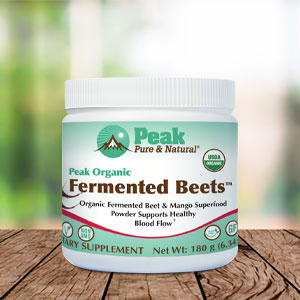Get Easy Health Digest™ in your inbox and don’t miss a thing when you subscribe today. Plus, get the free bonus report, Mother Nature’s Tips, Tricks and Remedies for Cholesterol, Blood Pressure & Blood Sugar as my way of saying welcome to the community!
Largest trial to date finds vitamin D reduces heart attacks

Cardiovascular diseases (CVDs) remain the No. 1 cause of death worldwide. They cause 17.9 million deaths each year, with a third of those deaths occurring prematurely in people under the age of 70.
More than four out of five CVD deaths are due to heart attacks and strokes, which is why doctors pay such close attention to warning signs like blood pressure and cholesterol levels.
But it looks like there’s another important level they should be paying a lot more attention to…
The heart-supporting vitamin
Vitamin D has been consistently linked with heart protection. In fact, it has been found in previous laboratory research to support cardiovascular health by:
- Stimulating nitric oxide (NO), which helps regulate blood flow and prevents clots in the cardiovascular system
- Reducing oxidative stress in the cardiovascular system
- Repairing the cardiovascular damage caused by many diseases, including hypertension, atherosclerosis and diabetes
- Reducing the risk of a heart attack
And observational studies have consistently indicated a link between low vitamin D levels and cardiovascular risk. But so far, randomized controlled clinical trials have found inconclusive evidence that vitamin D supplements impact cardiovascular events like heart attacks.
But a team of researchers in Australia believes they know why…
They theorized the lack of evidence could be due to differences in trial designs. So, they decided to investigate what would happen when supplementing older adults with monthly doses of vitamin D — in a health trial considered to be the largest of its kind to date…
Their “D-Health Trial” took place from 2014 to 2020. It involved 21,315 Australians ages 60 to 84 who randomly received a monthly capsule of either 60,000 international units (IU) of vitamin D or placebo. The capsule was taken at the beginning of each month for up to 5 years.
The study excluded people with a history of high calcium levels, overactive thyroid, kidney stones, soft bones, sarcoidosis or an inflammatory disease. It also excluded anyone already taking more than 500 IU per day of vitamin D.
The researchers then used data on hospital admissions to identify major cardiovascular events that occurred during the trial. These events included heart attacks, strokes and coronary revascularization, a treatment to restore normal blood flow to the heart.
This is what the researchers found:
- The rate of major cardiovascular events was 9 percent lower among those taking the monthly vitamin D supplement compared with the placebo group.
- The heart attack rate was 19 percent lower in the vitamin D group than in the placebo group.
- The rate of coronary revascularization was 11 percent lower.
- There was no difference in stroke rate between the two groups.
In short, the results say it all!
The researchers emphasize this was a large trial with extremely high retention and adherence. As such, they say, any conclusions that vitamin D supplementation doesn’t affect CVD risk “are premature.”
They also noted that this protective effect could be stronger in those taking statins or other cardiovascular drugs at the start of the trial — but further investigation is needed to clarify this issue, and that the findings may not apply to other populations, particularly those with a higher number of people deficient in vitamin D.
Vitamin D “101”
One interesting factor in the Australian study is the amount of vitamin D given to participants. A dose of 60,000 IU may seem gigantic, especially when compared to the recommended daily allowance (between 600 IU and 800 IU depending on age), which is the minimum recommendation for bone health.
But it’s important to remember the study participants received that high dosage just once a month — not daily — under the guidance of medical personnel. Unless administered by a doctor, it’s not advisable to take 60,000 IU.
More and more doctors are directing their patients to OTC vitamin D supplements that are available in dosages ranging from 400 to 10,000 IU, depending on their levels. And many health experts recommend a therapeutic daily dosage of 5,000 IU daily, which has been shown safe for adults.
When choosing a vitamin D supplement, pick one containing vitamin D3. It’s almost twice as effective as vitamin D2 at raising vitamin D levels. This is probably because vitamin D3 is the form of vitamin D that’s already stored in the body.
And if you follow this commonsense rule about supplementing vitamins, you get all the benefits without any of the worries.
Editor’s note: There are perfectly safe and natural ways to decrease your risk of blood clots including the 25-cent vitamin, the nutrient that acts as a natural blood thinner and the powerful herb that helps clear plaque. To discover these and other secrets of long-lived hearts, click here for Hushed Up Natural Heart Cures and Common Misconceptions of Popular Heart Treatments!
Sources:
Vitamin D Supplements May Reduce Risk of Heart Attacks and Major Cardiovascular Events — SciTechDaily
Vitamin D supplementation and major cardiovascular events: D-Health randomised controlled trial — The BMJ
Vitamin D — National Institutes of Health














